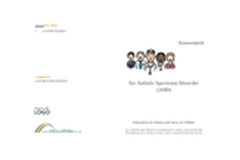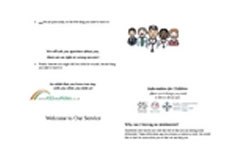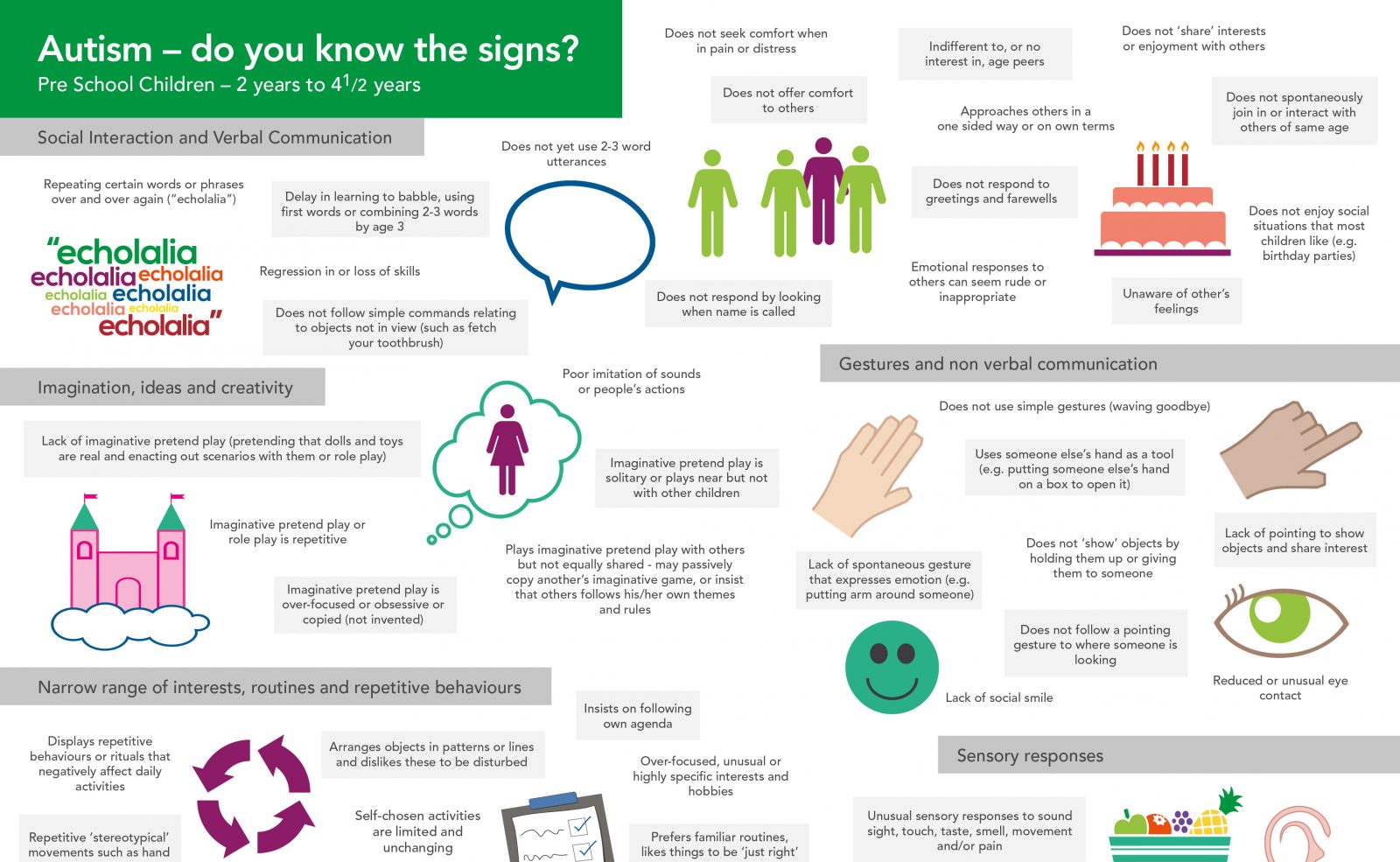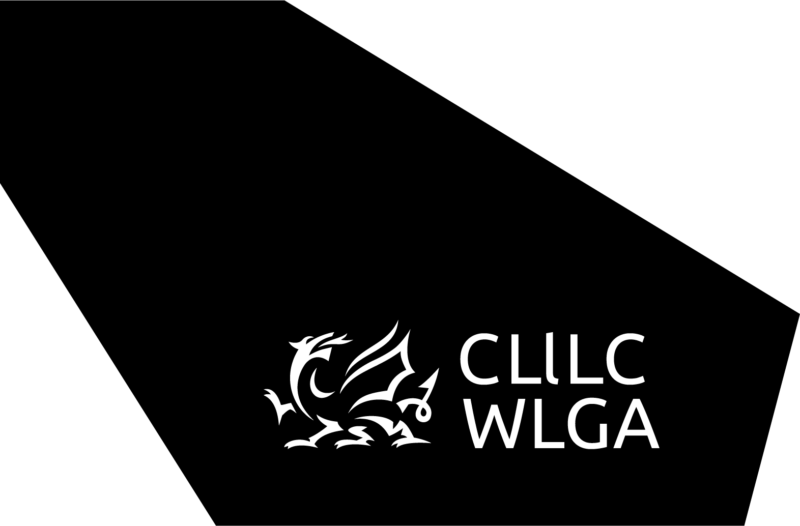- I am neurodivergent
- I am autistic
-
-
I am autistic
A range of useful resources have been developed with neurodivergent people. These can help with day to day activities and plans.
-
-
-
What is Autism?
This page highlights key resources on our website which help to build a better understanding of autism.
-
Advice sheets for autistic adults
On this page you will find downloadable links to a range of advice sheets on a variety of topics.
-
Adult Personal Profile
The profile can help people gain a better understanding of you and how they can help and support you more effectively.
-
-
-
Idioms Glossary
The glossary provides the meaning for various idioms.
-
Orange Wallet
The orange wallet scheme aims to help neurodivergent people when travelling on public transport.
-
Resources Booklet
This resource booklet outlines the resources we have available on our website.
-
-
-
My local contacts
Each Local Authority has a local Autism Lead that is the key contact for autism information, advice and guidance in that area.
-
Dewis Cymru
Dewis Cymru is the site to go to if you want information or advice about services within your area, as well as information on your well-being.
-
Integrated Autism Service
There are 7 Integrated Autism Services across Wales. They are a partnership between health and social care. Their primary focus is autistic adults who do not access statutory services or those adults seeking a diagnostic assessment.
-
-
-
Useful Links
Within this area of the website is a selection of other web resources that autistic people and those that care for them may find helpful.
-
-
- I have ADHD
-
-
I have ADHD
A range of useful resources have been developed with neurodivergent people. These can help with day to day activities and plans.
-
-
-
What is ADHD?
This section helps to build a better understanding of ADHD.
-
eLearning
In this section there are a set of structured modules that follow the National Training Framework for Wales. These modules have been coproduced with an advisory group of neurodivergent people and features their voices and experiences.
-
Advice Sheets
On this page you will find downloadable links to a range of advice sheets on a variety of topics.
-
-
-
Adult Personal Profile
The profile can help people gain a better understanding of you and how they can help and support you more effectively.
-
Idioms Glossary
The glossary provides the meaning for various idioms.
-
Orange Wallet
The orange wallet scheme aims to help neurodivergent people when travelling on public transport.
-
-
-
Resources Booklet
This resource booklet outlines the resources we have available on our website.
-
Dewis Cymru
Dewis Cymru is the site to go to if you want information or advice about services within your area, as well as information on your well-being.
-
Useful Links
Within this area of the website is a selection of other web resources that autistic people and those that care for them may find helpful.
-
-
- I have Tourettes
-
-
I have Tourettes
A range of useful resources have been developed with neurodivergent people. These can help with day to day activities and plans.
-
-
-
What is Tourettes?
This section helps to build a better understanding of Tourettes. A range of resources have been developed in partnership with people with Tourettes, parents and carers and professionals that clearly explain what Tourettes Syndrome is and how it affects people’s interaction with the world around them.
-
eLearning
In this section there are a set of structured modules that follow the National Training Framework for Wales. These modules have been coproduced with an advisory group of neurodivergent people and features their voices and experiences.
-
Adult Personal Profile
The profile can help people gain a better understanding of you and how they can help and support you more effectively.
-
-
-
Dewis Cymru
Dewis Cymru is the site to go to if you want information or advice about services within your area, as well as information on your well-being.
-
Useful Links
Within this area of the website is a selection of other web resources that neurodivergent people and those that care for them may find helpful.
-
-
- Education
-
-
Education
A series of resources have been developed aimed at the key stages of education. These resources include information to increase understanding and awareness and to also help address many of the barriers that a neurodivergent learner may face.
-
-
-
Further Education
The resources are aimed at increasing understanding of neurodivergence for those working in FE and provides a practical handbook for neurodivergent students.
-
Work Based Learning
The resources are aimed at increasing understanding of neurodivergence for those working in WBL and provides a practical handbook for neurodivergent learners.
-
-
- Employment
-
-
Employment
A series of resources have been developed aimed at choosing the right career/job, securing and maintaining employment. These include practical tools for the neurodivergent person and prospective/ current employers.
-
-
-
Exploring Employment Resource Booklet
This employment resource booklet for neurodivergent people provides practical information and signposts to useful employment resources. The booklet supplements the information provided at our Exploring Employment event.
-
Master Skills Dictionary
Use the dictionary to search for terms that you wish to find the definitions of.
-
Personal Skills Builder
Create your personal skills list to assist you in your job search.
-
-
-
CV Builder
Create your own CV here which you can save and download once complete.
-
Autism Understanding & Accepting Scheme
If your organisation would like to register to become an ‘Autism Understanding & Accepting’ organisation and receive a personalised organisation / service certificate, please click here.
-
Searching for work tool
To assist you in your job search, access our workbook here.
-
-
-
Resources for employers
This section includes resources that your employer may find useful.
-
-
- Further resources/contacts
-
-
Further resources/contacts
This section includes resources and contacts that you may find useful.
-
-
-
My local contacts
Each Local Authority has a local Autism Lead that is the key contact for information, advice and guidance in that area.
-
Dewis Cymru
Dewis Cymru is the site to go to if you want information or advice about services within your area, as well as information on your well-being.
-
Integrated Autism Service
There are 7 Integrated Autism Services across Wales. They are a partnership between health and social care. Their primary focus is autistic adults who do not access statutory services or those adults seeking a diagnostic assessment.
-
-
-
Useful Links
Within this area of the website is a selection of other web resources that autistic people and those that care for them may find helpful.
-
-
- I am autistic
- I am a parent / carer
- What is...?
-
-
What is…?
This section helps to build a better understanding of a range of neurodivergent conditions. A range of resources have been developed in partnership with neurodivergent people, parents and carers and professionals that clearly explain what neurodivergence is and how it affects people’s interaction with the world around them.
-
-
-
What is Autism?
This section helps to build a better understanding of autism.
-
What is ADHD?
This section helps to build a better understanding of ADHD.
-
What is Tourettes?
This section helps to build a better understanding of Tourettes.
-
-
- Topics
-
-
Topics
This section offers a collection of resources to help you support your child across various areas.
-
-
-
Sleep
This page has a collection of resources to help you to support your child’s sleep.
-
Assessment
This page has a collection of resources to help you to understand your child’s assessment process.
-
Food, Diet & Eating
This page has a collection of resources to help you to understand and manage issues with your neurodivergent child’s food and eating.
-
-
-
Supporting Siblings
This page has a collection of resources to help parents and carers support the siblings of neurodivergent children.
-
Planning & Organising
This page has a collection of resources to help you to support your child in planning and organsing.
-
School
This page has a collection of resources to help you to support your child’s school experience.
-
-
-
Toileting
This page has a collection of resources to help you to support your child’s toileting.
-
Challenging Behaviour/Distress Behaviour
This page has a collection of resources to help you to support your child’s challenging behaviour/distress behaviour.
-
Sensory Processing
This page has a collection of resources to help parents and carers support neurodivergent children with sensory processing.
-
-
-
Staying Safe Online
This page has a collection of resources to help parents and carers support neurodivergent children in staying safe online.
-
-
- Resources
-
-
Resources
This page offers a collection of resources to help you understand and support neurodivergence.
-
-
-
Parents & Carers Virtual Advice Sessions
Online information sessions for parents and carers, providing information about a range of topics relating to neurodivergence.
-
ND Parents Discussions
In this section, you will find a collection of audio discussions between neurodivergent parents.
-
Advice Sheets
This page has a collection of advice sheets on a range of topics that you may find useful.
-
-
-
Top Tips Sheets
This page has a collection of Top Tips sheets on a range of topics that you may find useful.
-
-
- Other Information
-
-
Other Information
This page provides a variety of resources for you and those around you.
-
-
-
Information for parents & carers
The resources within this section were developed in partnership with neurodivergent people, parents and carers and professionals. The resources are aimed at increasing the knowledge, skills, understanding of neurodivergence and practical tools for parents and carers of neurodivergent people.
-
Information for an autistic child
This section contains information for autistic children.
-
Information for young person/adult
This section contains information for young neurodivergent people and adults.
-
-
-
Information for siblings
This section contains information for the siblings of neurodivergent children.
-
Further resources/contacts
This section includes resources and contacts that you may find useful.
-
-
- What is...?
- Education
- Learning About Autism Award
-
-
Learning About Autism Award
The Learning about Autism programme is a whole school/setting approach to improving awareness and understanding of the needs of autistic pupils. A school can gain the award by completing the programme.
-
-
-
What is autism?
This section helps to build a better understanding of autism. A range of resources have been developed in partnership with autistic people, parents and carers and professionals that clearly explain what autism is and how it affects autistic people’s interaction with the world around them.
-
I work in an early years setting
The resources within this section were developed in partnership with autistic people, parents and carers and professionals. The resources are aimed at increasing the knowledge, skills, and understanding of autism for those working in an early years setting.
-
I work in a primary school
The resources within this section were developed in partnership with autistic people, parents and carers and professionals. The resources are aimed at increasing the knowledge, skills, and understanding of autism for those working in a primary school.
-
-
-
I work in a secondary school
The resources within this section were developed in partnership with autistic people, parents and carers and professionals. The resources are aimed at increasing the knowledge, skills, and understanding of autism for those working in a secondary school.
-
I work in a further education institute
The resources within this section were developed in partnership with autistic people, parents and carers and professionals. The resources are aimed at increasing the knowledge, skills, and understanding of autism for those working in further education and to provide a practical handbook for autistic students.
-
I am a work based learning provider
The resources within this section were developed in partnership with autistic people, parents and carers and professionals. The resources are aimed at increasing the knowledge, skills, and understanding of autism for those working in work based learning and to provide a practical handbook for autistic learners.
-
-
- I am a teacher/Early Years leader
-
-
I am a teacher/Early Years leader
The resources within this section were developed for teachers and Early Years leaders. These resources aim to enhance the knowledge, skills, and understanding of neurodivergence for professionals working in educational environments.
-
-
-
eLearning
In this section you will find a series of eLearning modules, which focus on a range of neurodivergent conditions. These modules have been co-produced with, and include video contributions from, people within the neurodivergent community.
-
Community of Practice Sessions on Education
In this section, you will find a range of recordings from our Community of Practice events. The recordings in this section focus specifically on education.
-
Community of Practice Sessions
In this section, you will find a range of recordings from our Community of Practice events. These events focus on a range of different neurodivergent conditions, and issues that impact the neurodivergent community. This section will be regularly updated when these events take place.
-
-
-
CAMHS Resource Toolkit & Quick Guide
This Resource Toolkit was developed for all professionals working in Specialist CAMHS. It is equally relevant for anyone working with neurodivergent children, young people and their families in health, education and social care, in helping to understand, explain and support wellbeing and practical outcomes.
-
Other Useful Resources
This section includes additional resources that you may find useful.
-
-
- I am an LSA
-
-
I am an LSA
The resources within this section were developed for Learning Support Assistants (LSAs).
These materials are designed to support LSAs in building their knowledge, skills, and understanding of neurodivergence, helping them to better assist neurodivergent students.
-
-
-
eLearning
In this section you will find a series of eLearning modules, which focus on a range of neurodivergent conditions. These modules have been co-produced with, and include video contributions from, people within the neurodivergent community.
-
Community of Practice Sessions on Education
In this section, you will find a range of recordings from our Community of Practice events. The recordings in this section focus specifically on education.
-
Community of Practice Sessions
In this section, you will find a range of recordings from our Community of Practice events. These events focus on a range of different neurodivergent conditions, and issues that impact the neurodivergent community. This section will be regularly updated when these events take place.
-
-
-
CAMHS Resource Toolkit & Quick Guide
This Resource Toolkit was developed for all professionals working in Specialist CAMHS. It is equally relevant for anyone working with neurodivergent children, young people and their families in health, education and social care, in helping to understand, explain and support wellbeing and practical outcomes.
-
Other Useful Resources
This section includes additional resources that you may find useful.
-
-
- I am a governor/other member of staff
-
-
I am a governor/other member of staff
The resources within this section were developed for school governors and other staff members.
These resources are intended to increase awareness and understanding of neurodivergence, equipping all school staff with the tools needed to support neurodivergent students effectively.
-
-
-
eLearning
In this section you will find a series of eLearning modules, which focus on a range of neurodivergent conditions. These modules have been co-produced with, and include video contributions from, people within the neurodivergent community.
-
-
- I am a Neurodivergent Pupil
-
-
I am a Neurodivergent Pupil
The resources within this section were developed for neurodivergent pupils.
These materials aim to provide neurodivergent students with information, tools, and strategies to navigate their educational journey confidently and successfully.
-
-
-
eLearning
In this section you will find a series of eLearning modules, which focus on a range of neurodivergent conditions. These modules have been co-produced with, and include video contributions from, people within the neurodivergent community.
-
Other Useful Resources
This section includes additional resources that you may find useful.
-
-
- I am a Parent/Carer
-
-
I am a Parent/Carer
The resources within this section were developed for parents/carers of neurodivergent children. These resources are designed to help parents/carers better understand neurodivergence and provide them with the knowledge and skills to support their child’s education and development.
-
-
-
eLearning
In this section you will find a series of eLearning modules, which focus on a range of neurodivergent conditions. These modules have been co-produced with, and include video contributions from, people within the neurodivergent community.
-
Community of Practice Sessions on Education
In this section, you will find a range of recordings from our Community of Practice events. The recordings in this section focus specifically on education.
-
Parents & Carers Virtual Advice Sessions
Online information sessions for parents and carers, providing information about a range of topics relating to neurodivergence. Each session consists of a presentation, followed by a Q&A.
-
-
-
Community of Practice Sessions
In this section, you will find a range of recordings from our Community of Practice events. These events focus on a range of different neurodivergent conditions, and issues that impact the neurodivergent community. This section will be regularly updated when these events take place.
-
Other Useful Resources
This section includes additional resources that you may find useful.
-
-
- Learning About Autism Award
- Employment
- I am neurodivergent
-
-
I am neurodivergent
A series of resources have been developed aimed at choosing the right career/job, securing and maintaining employment. These include practical tools for the neurodivergent person and prospective/current employers.
-
-
-
Master skills dictionary
Use the dictionary to search for terms that you wish to find the definitions of.
-
Personal skills builder
Create your personal skills list to assist you in your job search.
-
CV Builder
Create your own CV here which you can save and download once complete.
-
-
-
Searching for work tool
To assist you in your job search, access our workbook here.
-
Exploring Employment Resource Booklet
This employment resource booklet for neurodivergent people provides practical information and signposts to useful employment resources. The booklet supplements the information provided at our Exploring Employment event.
-
Exploring Employment Videos
This section includes recordings of all workshops from our virtual employment event called ‘Exploring Employment: How to find and keep the job or career that’s right for you’. The event is for neurodivergent people of working age.
-
-
-
Resources for employers
This section includes resources that your employer may find useful.
-
-
- I am an employer
-
-
I am an employer
A series of resources have been developed aimed at employers to gain greater skills, knowledge and understanding of neurodivergence and how to support neurodivergent employees more effectively.
-
-
-
What is Autism?
This section helps to build a better understanding of autism.
-
What is ADHD?
This section helps to build a better understanding of ADHD.
-
What is Tourettes?
This section helps to build a better understanding of Tourettes.
-
-
-
Autism Understanding & Accepting Scheme
If your organisation would like to register to become an ‘Autism Understanding & Accepting’ organisation and receive a personalised organisation / service certificate, please click here.
-
Employing an autistic person
These resources offer advice and guidance to employers on how best to support autistic employees in the workplace.
-
Exploring Employment Resource Booklet
This employment resource booklet for neurodivergent people provides practical information and signposts to useful employment resources. The booklet supplements the information provided at our Exploring Employment event.
-
-
-
Exploring Employment Videos
This section includes recordings of all workshops from our virtual employment event called ‘Exploring Employment: How to find and keep the job or career that’s right for you’. The event is for neurodivergent people of working age.
-
Resources for a neurodivergent person
This section includes resources that your neurodivergent employee may find useful.
-
-
- I am neurodivergent
- Community Services
- I work with children in health & social care
-
-
I work with children in health & social care
This section helps to build a better understanding of neurodivergence. A range of resources have been developed in partnership with neurodivergent people, parents and carers and professionals that clearly explain what neurodivergence is and how it affects neurodivergent people’s interaction with the world around them.
-
-
-
What is Autism?
This section helps to build a better understanding of autism.
-
What is ADHD?
This section helps to build a better understanding of ADHD.
-
What is Tourettes?
This section helps to build a better understanding of Tourettes.
-
-
-
Community of Practice sessions
In this section, you will find recordings from our Community of Practice events, which focus on a range of different neurodivergent conditions, and issues that impact the neurodivergent community.
-
Autism Understanding & Accepting Scheme
If your organisation would like to register to become an ‘Autism Understanding & Accepting’ organisation and receive a personalised organisation / service certificate, please click here.
-
I work in Health care
This section helps to build a better understanding of neurodivergence. A range of resources have been developed in partnership with neurodivergent people, parents and carers and professionals that clearly explain what neurodivergence is and how it affects neurodivergent people’s interaction with the world around them.
-
-
-
I work in Social Care
This section helps to build a better understanding of neurodivergence. A range of resources have been developed in partnership with neurodivergent people, parents and carers and professionals that clearly explain what neurodivergence is and how it affects neurodivergent people’s interaction with the world around them.
-
The Birthday Party
This film highlights the way autism can present differently from person to person and outlines the signs of autism.
-
CAMHS Resource Toolkit & Quick Guide
This Resource Toolkit is for all professionals working in Specialist CAMHS but primarily for CAMHS clinicians working with neurodivergent children and young people, and their families to understand, explain and support wellbeing and practical outcomes.
-
-
- I work with young people / adults in health & social care
-
-
I work with young people/adults in health & social care
The resources within this section were developed in partnership with neurodivergent people, parents and carers and professionals. The resources are aimed at increasing the knowledge, skills, and understanding of neurodivergence for young people and adult health and social care professionals.
-
-
-
What is Autism?
This section helps to build a better understanding of autism.
-
What is ADHD?
This section helps to build a better understanding of ADHD.
-
What is Tourettes?
This section helps to build a better understanding of Tourettes.
-
-
-
Community of Practice sessions
In this section, you will find recordings from our Community of Practice events, which focus on a range of different neurodivergent conditions, and issues that impact the neurodivergent community.
-
Autism Understanding & Accepting Scheme
If your organisation would like to register to become an ‘Autism Understanding & Accepting’ organisation and receive a personalised organisation / service certificate, please click here.
-
I work in Health Care
This section helps to build a better understanding of neurodivergence. A range of resources have been developed in partnership with neurodivergent people, parents and carers and professionals that clearly explain what neurodivergence is and how it affects neurodivergent people’s interaction with the world around them.
-
-
-
I work in Social Care
This section helps to build a better understanding of neurodivergence. A range of resources have been developed in partnership with neurodivergent people, parents and carers and professionals that clearly explain what neurodivergence is and how it affects neurodivergent people’s interaction with the world around them.
-
CAMHS Resource Toolkit & Quick Guide
This Resource Toolkit was developed for all professionals working in Specialist CAMHS. It is equally relevant for anyone working with neurodivergent children, young people and their families in health, education and social care, in helping to understand, explain and support wellbeing and practical outcomes.
-
-
- I work in housing
-
-
I work in housing
The resources within this section were developed in partnership with neurodivergent people, parents and carers and professionals. The resources are aimed at increasing the knowledge, skills, and understanding of neurodivergence for housing professionals.
-
-
-
What is Autism?
This section helps to build a better understanding of autism.
-
What is ADHD?
This section helps to build a better understanding of ADHD
-
What is Tourettes?
This section helps to build a better understanding of Tourettes
-
-
-
Housing Guide & certificated training scheme
This section is aimed at increasing the knowledge, skills and understanding of autism of housing services staff. And includes a comprehensive guide for housing staff based upon good practice and the Housing Act.
-
-
- I work in leisure & sport
-
-
I work in leisure & sport
The resources within this section were developed in partnership with neurodivergent people, parents and carers and professionals. The resources are aimed at increasing the knowledge, skills, and understanding of neurodivergence for those working in sport and leisure services.
-
-
-
What is Autism?
This section helps to build a better understanding of autism.
-
What is ADHD?
This section helps to build a better understanding of ADHD.
-
What is Tourettes?
This section helps to build a better understanding of Tourettes.
-
-
-
Autism Understanding & Accepting Scheme
If your organisation would like to register to become an ‘Autism Understanding & Accepting’ organisation and receive a personalised organisation / service certificate, please click here.
-
-
- I work in the emergency services
-
-
I work in the emergency services
The resources within this section were developed in partnership with neurodivergent people, parents and carers and professionals. The resources are aimed at increasing the knowledge, skills, and understanding of neurodivergence for those working in the emergency services.
-
-
-
What is Autism?
This section helps to build a better understanding of autism.
-
What is ADHD?
This section helps to build a better understanding of ADHD.
-
What is Tourettes?
This section helps to build a better understanding of Tourettes.
-
-
-
Emergency Services Training Film
This section is aimed at increasing the knowledge, skills and understanding of neurodivergence for the emergencies services.
-
-
- I work with children in health & social care
- Get Involved









